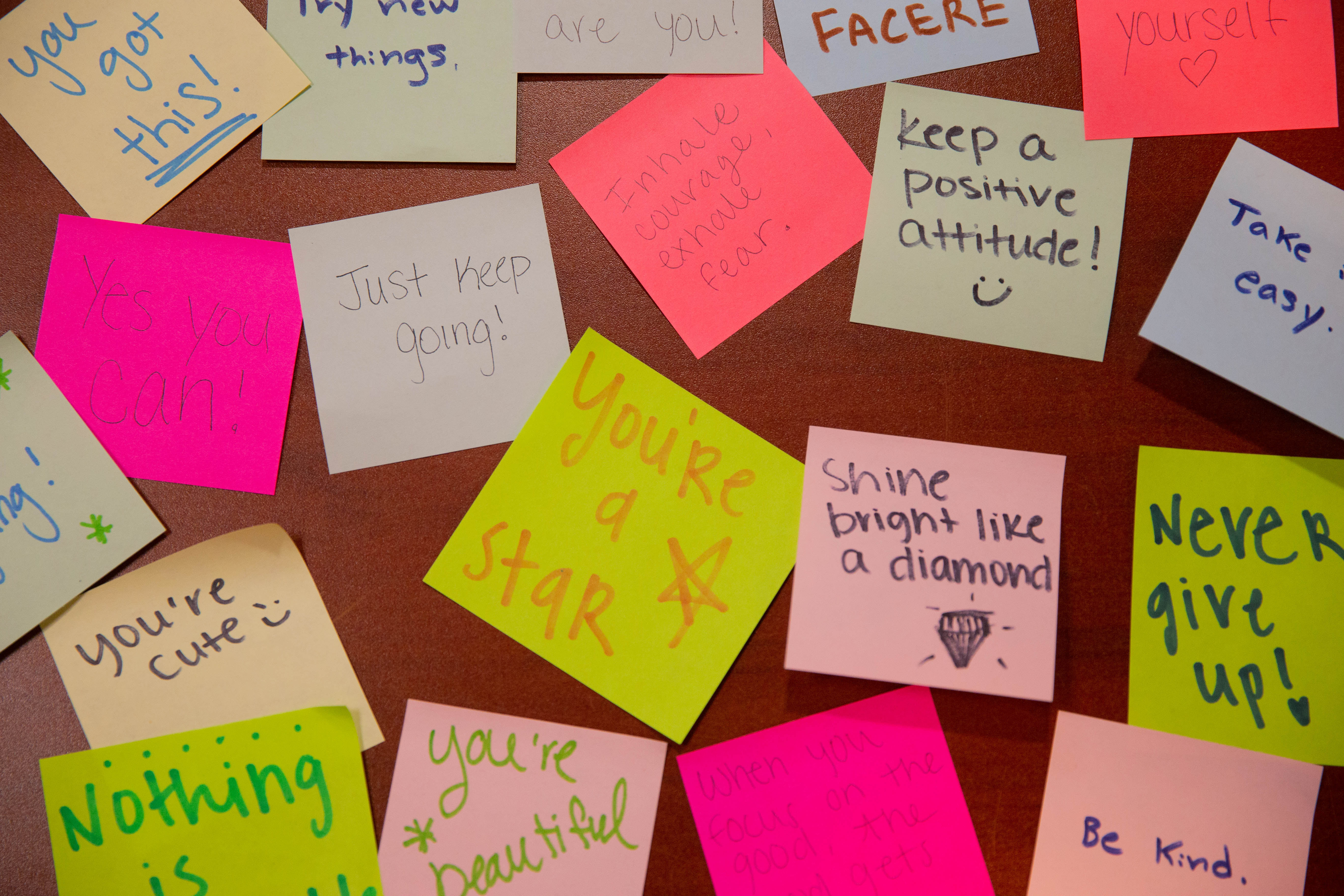Organizations promote campaigns asking students to post positive messages throughout their communities as a way to boost confidence, but messages such as “you’re beautiful” or “you shine so bright” found on sticky notes displayed on bathroom mirrors or the walls of campus hallways do not always spark positive change in the minds of those struggling with low self-esteem.
The handwritten compliments that stare back at us during trips to the bathroom do not prevent the occurrence of negative thoughts and go directly against the belief system of those who face problems with their confidence, sometimes making them feel uncomfortable.
Everyone struggles with their confidence at times, but those with low self-esteem often feel unloveable, awkward or incompetent and see rejection even in places where there is only love and acceptance, according to PsychAlive. Low self-esteem can lead people to have negative thoughts about themselves, and without attention, can also lead to anxiety and depression, according to PsychCentral.
“If we believe we’re truly undesirable, hearing compliments about how attractive we are will feel jarring and inauthentic,” Dr. Guy Winch wrote for Psychology Today. “If we believe we’re unintelligent, someone lavishing us with praise about how smart we are will feel more like a taunt than a compliment. And if we’re convinced we’re incapable of success, receiving praise about how capable we are can feel like a set-up for future heartbreak and disappointment.”
Some campaigns use these uplifting messages as a way to promote inspiration and positivity.
The worldwide Positive Post-It Day was started by Caitlin Haacke, a student in Alberta, Canada, in 2014, according to the Cyberbullying Research Center. Haacke began writing the notes after bullies from her school suggested to her on social media that she take her own life. Instead of fighting back against her bullies, she picked up a marker and a pad of Post-It notes and started writing. Later at school, she posted a note with a positive message on every single student’s locker, and in a small way, she brightened the day of her peers while also tackling her own struggles with bullying.
While many Post-It note campaigns help in small ways, the greatest way to help people with low self-esteem is to ask them to say nice things about themselves instead of others.
Students should encourage those struggling with their own confidence to question their negative thoughts and write down their accomplishments, what makes them happy and what events in their life they are looking forward to. Encouraging them to write these items on colorful Post-It notes and putting them in places where they will come across them throughout the day will reward them with realistic and personalized reminders.
Students can continue to post positive notes in schools, offices and shops, but they should also post information about where people can find help and information about thinking traps and how to avoid them.
Our brains are complicated and our thoughts are often unpredictable. While these notes can be helpful, it will sometimes take more than handwritten compliments on bathroom mirrors to stop our thoughts from spiraling. Luckily, our complex brains make us innovative problem-solvers, and there is help out there for anyone struggling with low self-esteem.



